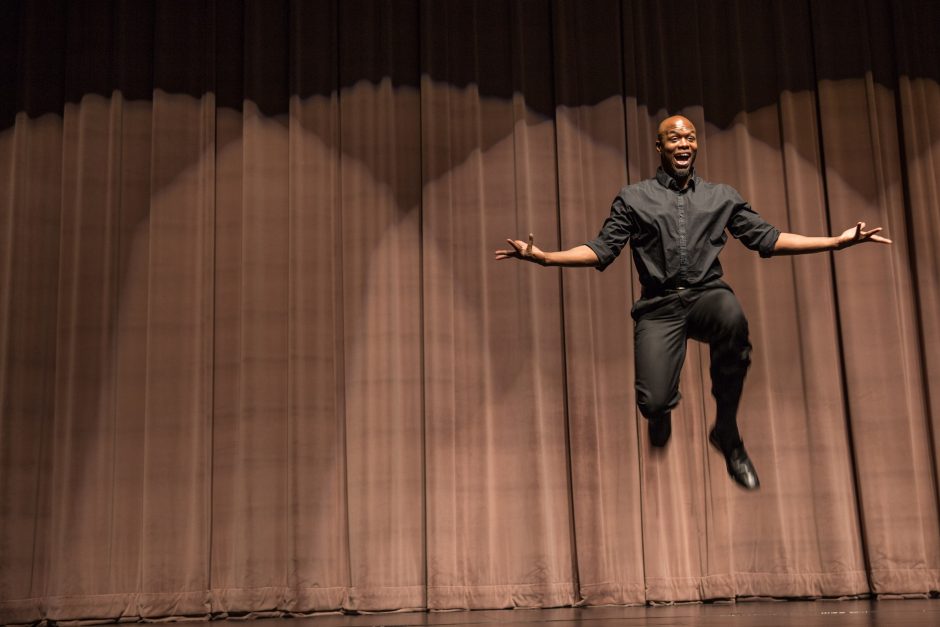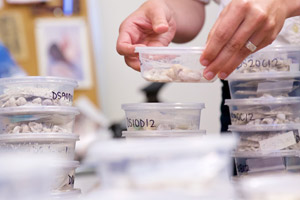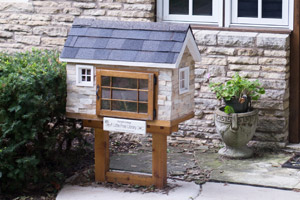Cornell Fellows developing legacy of experience
Although the job market for new college graduates is the best it’s been since the Great Recession of 2008, it’s still a competitive world for people looking for entry-level positions. Students are increasingly using real-world experiences gained during their college years to differentiate themselves from the competition.
Enter the Cornell Fellows program.
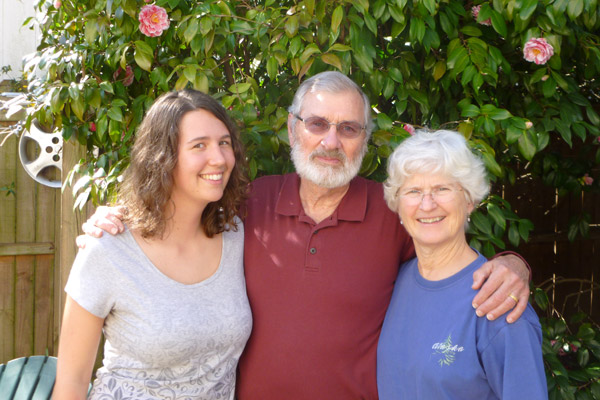
As it begins its 12th year, the program continues to offer participants an opportunity to gain experience in the workplace in full-time positions over the course of eight weeks, usually during the summer. Each position comes with an expense allowance, which helps the student defray the costs of living expenses, and helps preclude the need for some students to get a summer job.
“We want the program to be valuable for the student and for the employer,” says RJ Holmes-Leopold ’99, who was the program administrator for most of its history until moving to his role in Alumni Engagement and Annual Giving in 2015. “Our fellowships should be complex enough to be comparable to an entry-level experience. Fellows not only get a sense of what the real world is like, but they also get to do a deep dive into a field to understand the issues.”
Lasting relationships
Parker Reynolds ’07 completed the first Cornell Fellowship, the Small Fellowship in Theatre Management, at Creede Repertory Theatre in Creede, Colorado, in January 2005. Since then more than 300 students have participated in the program. Each fellowship is named, which serves to connect the students with the donors supporting their fellowship. Sometimes those connections are long-lasting.
John Mark Dean ’58, distinguished professor emeritus of marine science and biological sciences at the University of South Carolina, established the Rogers Fellowship in Environmental Studies eight years ago. It is named for his mentor at Cornell, the late biology professor Ed Rogers ’39. Many Rogers Fellows work at the Baruch Institute for Marine and Coastal Sciences at USC. The first of the 11 Fellows John Mark Dean and his wife, Robin, supported was Alyssa Borowske ’07.
“She came to the Institute to work on her honors thesis,” Dean says. “Over the intervening years, we’ve visited her at her home in Vermont, and she’s come here to visit us.”
Borowske, who recently received her doctorate from the University of Connecticut, says, “The most important aspect of my fellowship was my interactions with John Dean. In every interaction—from the first day we met and he invited me to South Carolina to giving me full use of his on-campus office to introducing me to friends and colleagues—John treated me as an academic. As an adult. As an equal. In many ways, my fellowship experience was the beginning of my transition from undergraduate student to independent scholar and researcher.”
Dean says his support of the Rogers Fellowship enables him to maintain contact with Cornell through its students.
“I tell my classmates this is how you can support Cornell and have a personal relationship with a student,” Dean says. “You can see the outcomes—see the impact of your support. When you meet them, you realize how good these young people really are. It helps reinforce the fact that Cornell is really doing an excellent job preparing students for their futures.”
The Cornell Fellows program was the brainchild of former Cornell trustee Dean Riesen ’79. During his senior year at Cornell, he completed an internship that changed his life in what he has described as “unexpected and positive ways.” Riesen sought to provide a similar experience for outstanding Cornell students and proposed the Cornell Fellows Program. He has funded 18 Fellows.
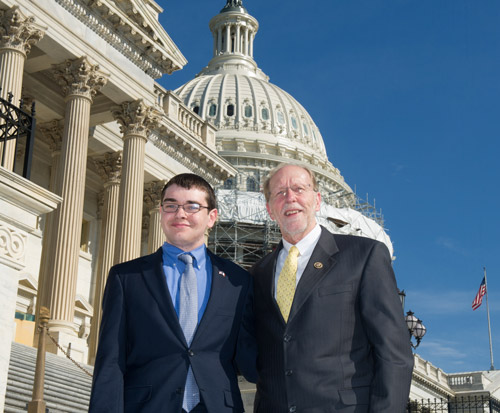
A full-time immersive experience
The bar is set high for Cornell Fellows, says Jason Napoli, Cornell’s director of employer relations and career coaching.
“This is not just an assisting experience. We want it to be a full-time, immersive experience,” Napoli says. “We expect certain deliverables from the Fellows.”
Among those deliverables are a weekly blog documenting the experience, a written report, and presenting at a bi-annual Cornell Fellows Showcase.
“Many students say the life skills they acquire are the most valuable part of their fellowship. They learn how to be a young professional, rather than a student,” he says.
Rodney ’73 and Elizabeth Black ’73 have supported 17 Black Fellows in fields as diverse as accounting, humanitarian aid, arts management, and neuroscience in locations from Madagascar and Mexico to Dallas and Washington, D.C. They say the program helps give students an edge for whatever future they pursue.
“The Cornell Fellows program stands out because there’s a lot more emphasis and demand for internships and hands-on experience these days,” says Rodney Black.
Application for a Cornell Fellowship is both rigorous and competitive. The process includes a resume, a personal statement, a faculty letter of support, and transcripts of the student’s grades.
There are several types of Fellows opportunities:
- Existing fellowships that have been developed by the Cornell Fellows program.
- Fellowships students propose in collaboration with a faculty member.
- Fellowships self-created by students according to their interests.
- Fellowships as part of an external internship program.
For students electing to follow the first path, Cornell administrators, faculty, and alumni have developed relationships with select employers, including the Children’s Hospital Colorado, the Mayo Clinic, Creede Repertory Theatre in Colorado, the University of Chicago, Target, and Teacher Created Materials Publishing in California.
Other fellowship sites include a law office in Kingston, Jamaica, a medical research lab at the University of Iowa, SeaWorld, several U.S. Senate and House members’ offices, the University of Georgia, the African-American Museum in Cedar Rapids, Iowa, and St. Matthew’s National School in Dublin, Ireland.
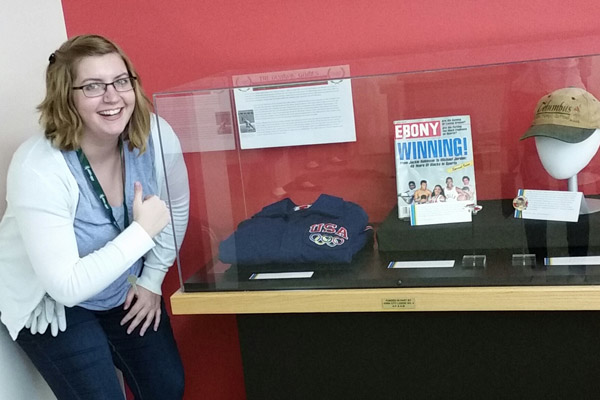
Direct connections between fellowships and jobs are not uncommon. Aaron Reykdal ’06 was a Target Fellow during the summer of 2005, working in the company’s human resources department.
“The fellowship built the professional skills and confidence I needed and helped me determine the type of work I wanted to do after Cornell,” Reykdal says. “It also led to an interview and job offer at Target, and I just celebrated my 10th year with the company.”
Advice for students
Reykdal encourages students to take advantage of the opportunities the Cornell Fellows program offers. “It’s very important in your sophomore and junior summers to gain relevant experience in the career you’re pursuing,” he says. “The structure and support the Fellows program provides will help you assess not only what you’ve learned but also help you think about the type of work you want to do after Cornell.”
Veronica Czastkiewicz ’08 was a Riesen Fellow in Public Affairs at the Goldwater Institute in Phoenix during the summer of 2006. She says a fellowship helps a student learn about him or herself, as well as a field or a specific organization.
“The fellowship was one of the most formative experiences I had at Cornell. My fellowship turned me on to public policy and contributed to my interest in pursuing a graduate degree in political science. I’m confident it produced one of the best returns on investment for donors to Cornell.”
After Cornell, Czastkiewicz earned her doctorate in political science from Northeastern University in Boston. She has been a visiting professor at Cornell and is on the faculty of Pueblo Community College and Pikes Peak Community College in Colorado.
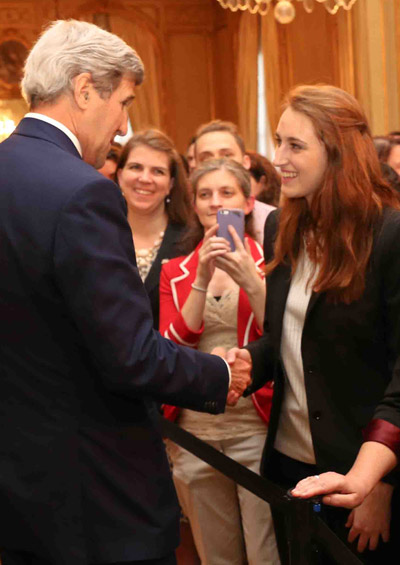
She, too, has a message for students: “These fellowships can inspire a new passion for or alert you to possible dismay with a future career or life path.”
Lisa Brown ’07 was a Riesen Fellow in Applied Economics and Business at Marquette Financial Companies in Minneapolis. The fellowship pointed her down a path she is still traveling. “Students should be open-minded to exploring different options and locations,” she says, “because now is the time to experience something new, and through those experiences they will be better able to define what they value and to set career goals that are attainable.”
After completing her economics and business degree, Brown took a position with GreatAmerica Financial Services Corporation in Cedar Rapids, where she now leads a team charged with analytics for the credit function and teaches advanced concepts and analysis skills to a credit staff of over 40 analysts. Brown says her Fellowship opened her eyes to her future career and differentiated her from other college graduates.
With the track record of the program well established after 11 years, the Cornell Fellows initiative is now part of the newly created Berry Career Institute, which will be the student’s resource for career exploration; resume and cover letter creation and review; mock interviews; internship and job searches; and graduate school prep. The Berry Career Institute is led by Senior Director Jodi Schafer.
“Cornell is fortunate to have a unique and premier internship program in Cornell Fellows,” Schafer says. “We’ve learned a lot from this program and have an opportunity with the new Berry Career Institute to scale all of the internship programs in order to provide similar opportunities to a larger population of students. This will be critical to ensuring successful career outcomes as employers increasingly expect work experience prior to graduation.”

